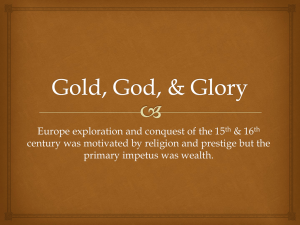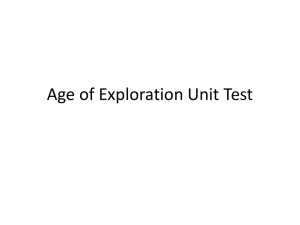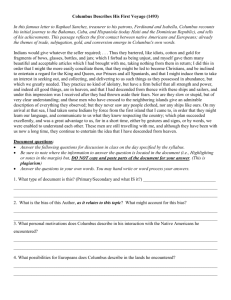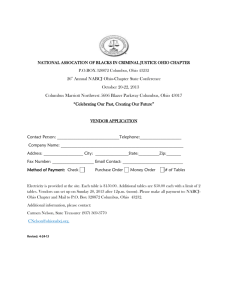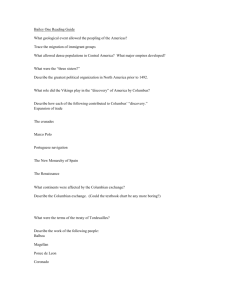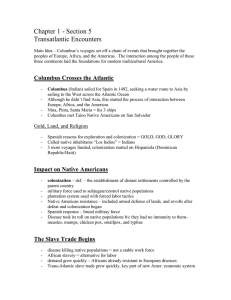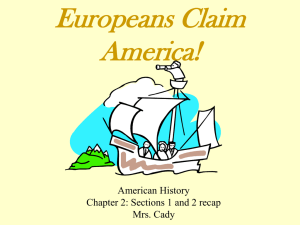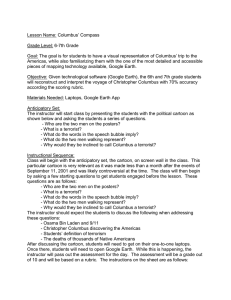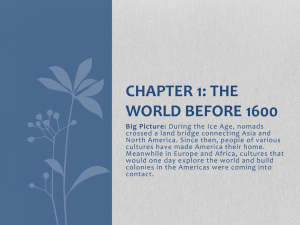Different Perspectives: Using Primary and Secondary Sources The
advertisement
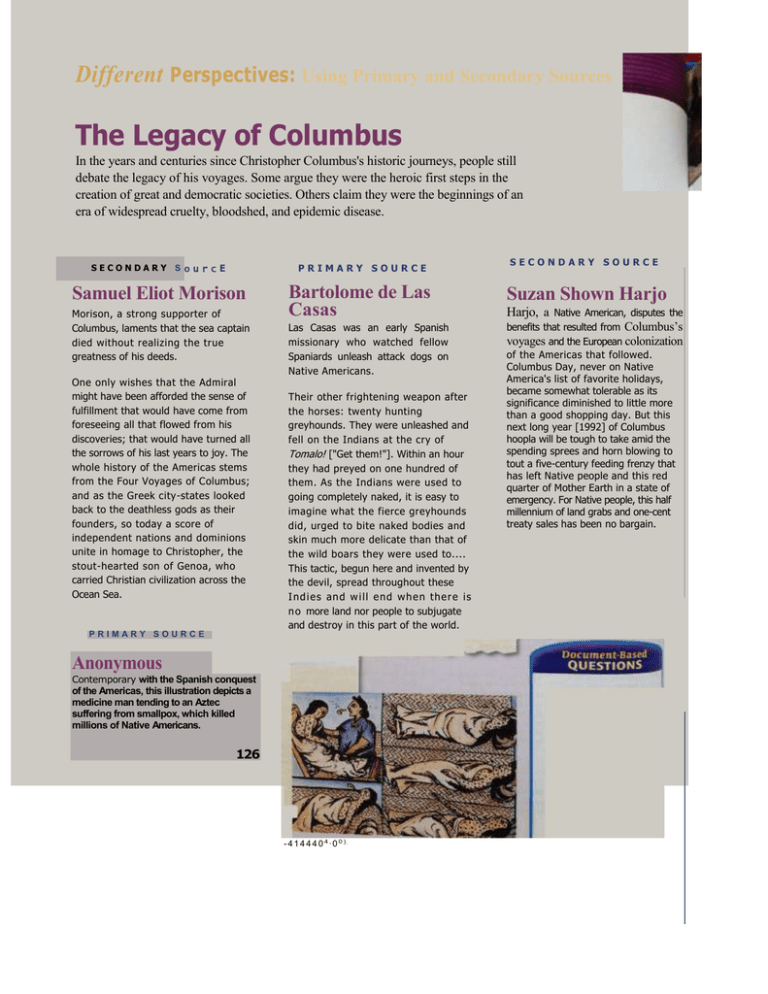
Different Perspectives: Using Primary and Secondary Sources The Legacy of Columbus In the years and centuries since Christopher Columbus's historic journeys, people still debate the legacy of his voyages. Some argue they were the heroic first steps in the creation of great and democratic societies. Others claim they were the beginnings of an era of widespread cruelty, bloodshed, and epidemic disease. SECONDARY S o u rc E PRIMARY SOURCE Samuel Eliot Morison Morison, a strong supporter of Columbus, laments that the sea captain died without realizing the true greatness of his deeds. One only wishes that the Admiral might have been afforded the sense of fulfillment that would have come from foreseeing all that flowed from his discoveries; that would have turned all the sorrows of his last years to joy. The whole history of the Americas stems from the Four Voyages of Columbus; and as the Greek city-states looked back to the deathless gods as their founders, so today a score of independent nations and dominions unite in homage to Christopher, the stout-hearted son of Genoa, who carried Christian civilization across the Ocean Sea. PRIMARY SOURCE Bartolome de Las Casas Las Casas was an early Spanish missionary who watched fellow Spaniards unleash attack dogs on Native Americans. Their other frightening weapon after the horses: twenty hunting greyhounds. They were unleashed and fell on the Indians at the cry of Tomalo! ["Get them!"]. Within an hour they had preyed on one hundred of them. As the Indians were used to going completely naked, it is easy to imagine what the fierce greyhounds did, urged to bite naked bodies and skin much more delicate than that of the wild boars they were used to.... This tactic, begun here and invented by the devil, spread throughout these I nd i e s a n d w i ll e nd w h e n the r e is n o more land nor people to subjugate and destroy in this part of the world. Anonymous Contemporary with the Spanish conquest of the Americas, this illustration depicts a medicine man tending to an Aztec suffering from smallpox, which killed millions of Native Americans. 126 -4144404,00)' SECONDARY SOURCE Suzan Shown Harjo Native American, disputes the benefits that resulted from Columbus’s voyages and the European colonization of the Americas that followed. Columbus Day, never on Native America's list of favorite holidays, became somewhat tolerable as its significance diminished to little more than a good shopping day. But this next long year [1992] of Columbus hoopla will be tough to take amid the spending sprees and horn blowing to tout a five-century feeding frenzy that has left Native people and this red quarter of Mother Earth in a state of emergency. For Native people, this half millennium of land grabs and one-cent treaty sales has been no bargain. Harjo, a


